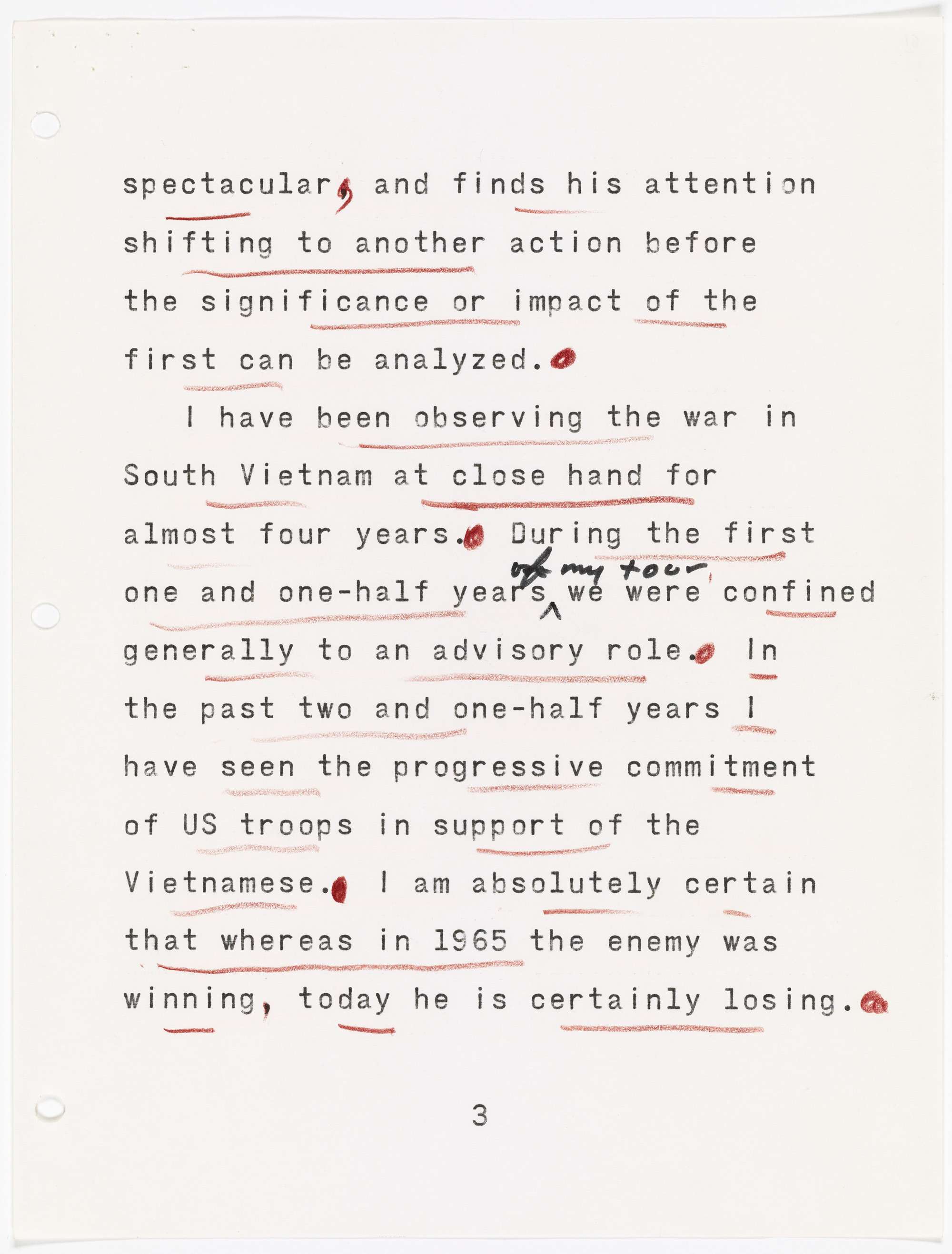Page from General Westmoreland’s National Press Club Address
11/1967
Add to Favorites:
Add all page(s) of this document to activity:

During the Johnson administration, public support for the Vietnam War fell below 50 percent for the first time. In October 1967, nearly 100,000 people joined the March on the Pentagon to protest the war. The Johnson administration tried to tamp down dissent with news of progress, going so far as to call General William Westmoreland home from the battlefield to project optimism to the American people at the end of 1967.
It was the first time a theater commander had been called home from the battlefield. As shown on this page, the general told a group of journalists: "I am absolutely certain that whereas in 1965 the enemy was winning, today he is certainly losing." Also in his speech, he said "we have reached an important point when the end begins to come into view."
However, after the Tet Offensive in early 1968, President Johnson lost credibility in the eyes of many Americans. In January, South Vietnamese and American troops were caught off guard by 70,000 Communist troops who struck more than 100 towns and cities with swift and stunning ferocity. A second wave of fighting took place in late April, and a third in August. Although the enemy suffered devastating casualties and their attempt to spark a general uprising completely failed, many Americans concluded the U.S. and its allies had suffered a massive defeat.
When a Defense Department report regarding the need for 205,000 more American troops was leaked to the New York Times, Americans concluded the war was stalemated and the Johnson administration had lied to them.
It was the first time a theater commander had been called home from the battlefield. As shown on this page, the general told a group of journalists: "I am absolutely certain that whereas in 1965 the enemy was winning, today he is certainly losing." Also in his speech, he said "we have reached an important point when the end begins to come into view."
However, after the Tet Offensive in early 1968, President Johnson lost credibility in the eyes of many Americans. In January, South Vietnamese and American troops were caught off guard by 70,000 Communist troops who struck more than 100 towns and cities with swift and stunning ferocity. A second wave of fighting took place in late April, and a third in August. Although the enemy suffered devastating casualties and their attempt to spark a general uprising completely failed, many Americans concluded the U.S. and its allies had suffered a massive defeat.
When a Defense Department report regarding the need for 205,000 more American troops was leaked to the New York Times, Americans concluded the war was stalemated and the Johnson administration had lied to them.
Full Citation: Reading Copy of General Westmoreland’s National Press Club Address; 11/1967; Lyndon Baines Johnson Library, Austin, TX. [Online Version, https://www.docsteach.org/documents/document/westmoreland-press-club, April 27, 2024]
Rights: Public Domain, Free of Known Copyright Restrictions. Learn more on our privacy and legal page.
